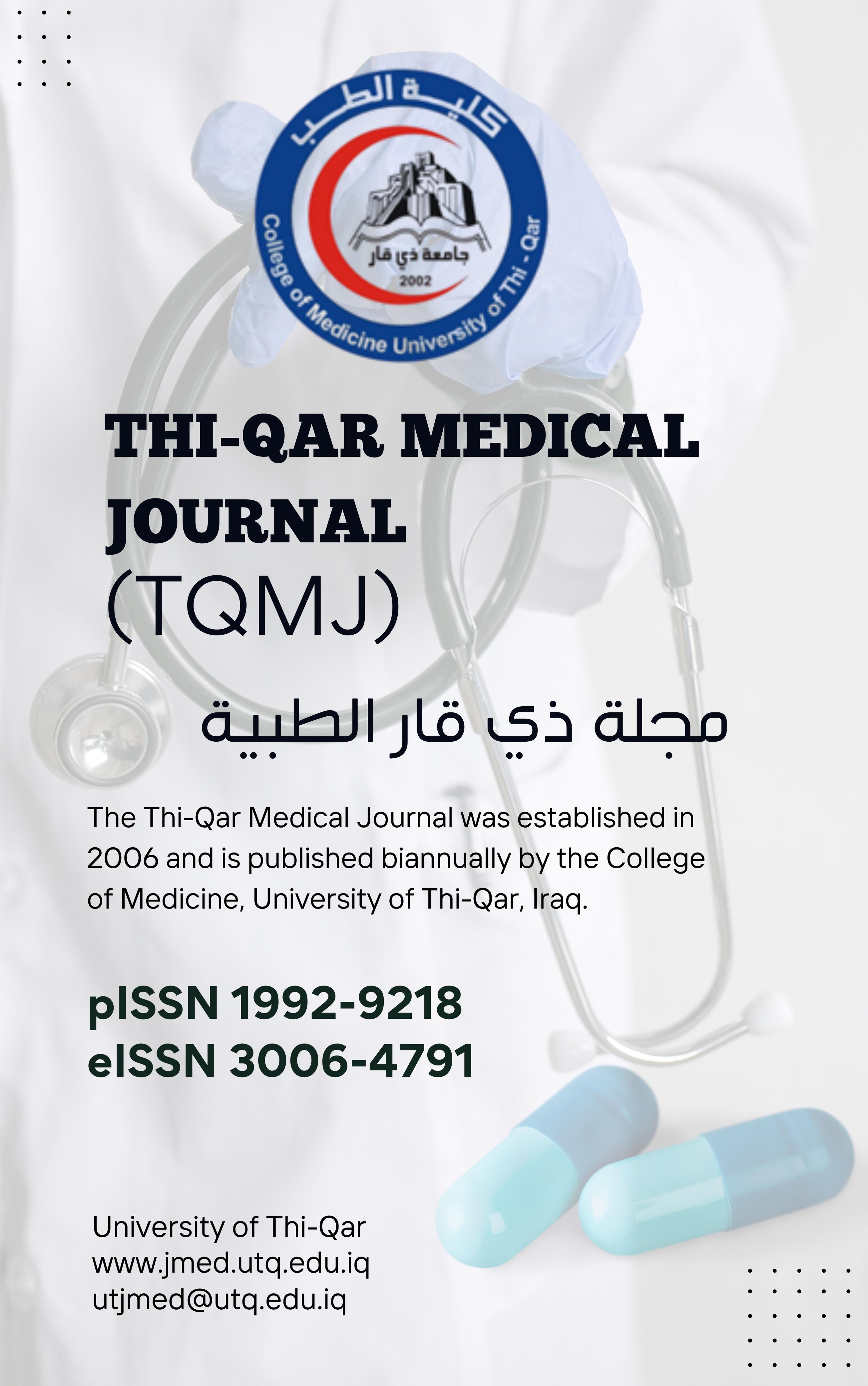Factors influencing the performance of reproductive health care service providers in Basrah
DOI:
https://doi.org/10.32792/tmj.v10i2.146Keywords:
Reproductive health service providers, performance, BasrahAbstract
Background: In order to implement a better and high standard quality of reproductive health care services, customers should be ensured to have the appropriate needed service. Moreover, granting a better quality service encourage more beneficiaries in need, improve the coverage of reproductive health and family planning services and reduce maternal & child morbidity and mortality due to reproductive health related problems. Objectives: The study aims to look at the perception of health providers regarding the needs of the women age(15-49) years living in Basra in the area of reproductive health, in addition to identifying factors influencing the performance of reproductive health and family planning service providers. Subjects and method: A face to face interview questionnaire was used with 159 health care providers from different levels of public health care facilities in Basra. Results: Deficiency of the professional training and continuous medical education, Shortage of human resources and inadequately allocated place for providing the services were found by the study to be the main influencing factors on the performance of reproductive health and family planning service providers. Conclusion: The study shows that implementing mass education campaigns to raise the community awareness about the importance of reproductive health was the main suggestion made by the health care providers during this study.In addition, establishing work guidelines, standards and protocols was found by the study to play a major role in improving the performance of reproductive health care service providers in addition to professional training programs to enhance the providers' technical and scientific skills in the field of reproductive health and family planning. Furthermore, the study recommended implementing more mass education campaigns to raise the community awareness about the importance of reproductive health.References
e World Bank. Better Health for Women and Families. The World Bank’s Reproductive Health Action Plan 2010-2015. June 2010. http://siteresources.worldbank.org/INTPRH/Resources/376374-1261312056980/RHAP_Pub_8-23-10web.pdf .Accessed on: December 2012.
United Nations. The United Nations Millennium Development Goals report 2012. June, 2012. http://www.un.org/millenniumgoals/pdf/MDG%20Report%202012.pdf.Accessed on: October 2012.
Farzaneh R. Fahimi. Women’s Reproductive Health in the Middle East and North Africa. Washington, D.C., Population Reference Bureau (PRB). February 2003. http://www.google.iq/url?sa=t&rct=j&q=&esrc=s&frm=1&source=web&cd=1&ved=0CBoQFjAA&url=http%3A%2F%2Fwww.prb.org%2Fpdf%2Fwomensreprohealth_eng.pdf&ei=bd_LU4tW4b_KA_epgqAD&usg=AFQjCNHgN6M_1SzsbzWSZj9wv1-6oUF3RQ&sig2=p3aPV9DLKKBLth7lgF84jA Accessed on: April 2013
Farzaneh R. Fahimi, Shereen El Feki. Facts of Life and youth sexuality and reproductive health in the Middle East and North Africa. Population Reference Bureau, 2011 www.prb.org/Reports/2011/facts-of-life.aspx.. Accessed on: April 2013
Liz C. Creel, Justine C. Sass, and Nancy V. Yinger. Overview of Quality of Care in Reproductive Health: Definitions and Measurements of Quality. Population Reference Bureau. Accessed on: May 2013 http://www.prb.org/Publications/Reports/2002/OverviewofQualityofCareinReproductiveHealthDefinitionsandMeasurements.aspx
Ilene S., Kenneth A. Bollen, How Well Do Perceptions of Family Planning Service Quality Correspond to Objective Measures? Evidence from Tanzania. Studies in Family Planning 31, no. 2 (2000): 163-77. Accessed on: May 2013
Thomas A. Mroz et al. Quality, Accessibility, and Contraceptive Use in Rural Tanzania. Demography 36, no. 1 (1999): 23-40.
Michael A. Koenig et al. The Influence of Quality of Care Upon Contraceptive Use in Rural Bangladesh. Studies in Family Planning 28, no. 4 (1997): 278-89.
Soledad D. Quality is Client-Oriented. Planned Parenthood Challenges 2 (1994): 31-33.
Carlos H. Soledad D. Quality of Care in Family Planning: Clients' Rights and Providers' Needs. Advances in Contraception 9, no. 2 (1993): 129-39.
Ministry of Health, WHO (2009). A Basic Health Services Package for Iraq. January 2009. http://www.emro.who.int/dsaf/libcat/EMROPD_2009_109.pdf. Accessed on: June 2013
Bobadilla JL, Reyes Frausto S, Karchmer S.. Magnitude and causes of maternal mortality in the Federal District (1988-1989). Gneta de Medica de México(1996) 132(1):5–16.).
USAID Iraq, MoH. Baseline Assessment report. USAID Primary Health Care Project in Iraq (PHCPI). December 2011
Regional Health Systems Observatory- EMRO. Health System Organization. Health Systems Profile- Iraq. http://gis.emro.who.int/HealthSystemObservatory/PDF/Iraq/Health%20system%20organization.pdf Accessed on: May 2013
Richard Garfield, Ron Waldman. Review of Potential Interventions to Reduce Child Mortality in Iraq. November 5, 2003. http://pdf.usaid.gov/pdf_docs/pnacw617.pdf. Accessed on: June 2013




